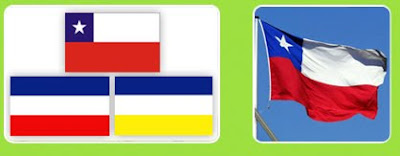On World Water Day: WATER MANAGEMENT IN POST CONFLICT COUNTRIES CRITICAL TO PEACEBUILDING AND ECONOMIC RECOVERY – NEW STUDY
| On World Water Day: WATER MANAGEMENT IN POST CONFLICT COUNTRIES CRITICAL TO PEACEBUILDING AND ECONOMIC RECOVERY – NEW STUDY |
|
|
WASHINGTON, DC - 21 March
2014‒In times of war, water resources and infrastructure are often
destroyed or become inaccessible to large segments of people living in
conflict areas. Restoring these critical services can avert
humanitarian crises and rebuild state authority, according to a new
study launched today by the Environmental Law Institute (ELI), the
United Nations Environment Programme (UNEP), the University of Tokyo,
McGill University, and Duke University. |
|
|
According to the study,
entitled Water and Post-Conflict Peacebuilding, effective water
management is vital for mitigating new tensions over water resources,
with some 1.8 billion people expected to face absolute water scarcity in
the next decade. Cooperation over water management, the study says, can serve to restore trust among divided communities as well as between neighboring countries. Early intervention in the water sector can also help societies set the foundation for more equitable and sustainable water use and in turn support better economic recovery. Today, countries are beginning to recognize water management is critical for peace and development: of the 55 countries affected by major conflict between 1990 and 2013, the study shows that 30 of those addressed water management in their post-conflict constitutions. “The sound governance of water resources is vital for promoting peace and stability and is among the highest priorities during post-conflict recovery and peace building. Water, sanitation, and the related infrastructure are also critical to economic development and the recovery of livelihoods in the aftermath of war.” said UNEP Executive Director and UN Under-Secretary-General Achim Steiner. “The added challenge of how climate change impacts water resources underscores the urgency to promote adaptive water institutions and sound governance approaches throughout all stages of post-conflict peace building,” he added. The study further demonstrates the steps that post-conflict countries can undertake to provide reliable sources of water for the restoration of agricultural livelihoods and food security, including data collection, repairing damaged irrigation networks, and improving governance systems. It emphasizes the need for cross-sectoral coordination in order to manage competing interests and mitigate new conflicts. “If water resources, which underpin all aspects of society – energy, health, economic growth, food security– are not addressed during the peacebuilding phase, new conflict may ensue at the local level” stated John Cruden, President of the Environmental Law Institute. Indeed, in many post-conflict countries like Afghanistan, water is the second most contentious issue at the local level after land. “The study examines how decisions governing water resources in post-conflict settings can promote or undermine peace building. Understanding these lessons – what went right, what went wrong,and why – has value for policymakers, students, and anyone involved in humanitarian, peacebuilding, and development efforts,” says Erika Weinthal, Associate Professor of Environmental Policy at Duke University’s Nicholas School of the Environment. Water and Post-Conflict Peace building is the fourth book in a six-volume series addressing the challenges and opportunities of managing natural resources for post-conflict peace building around the world. fuente: pnuma |

Comentarios